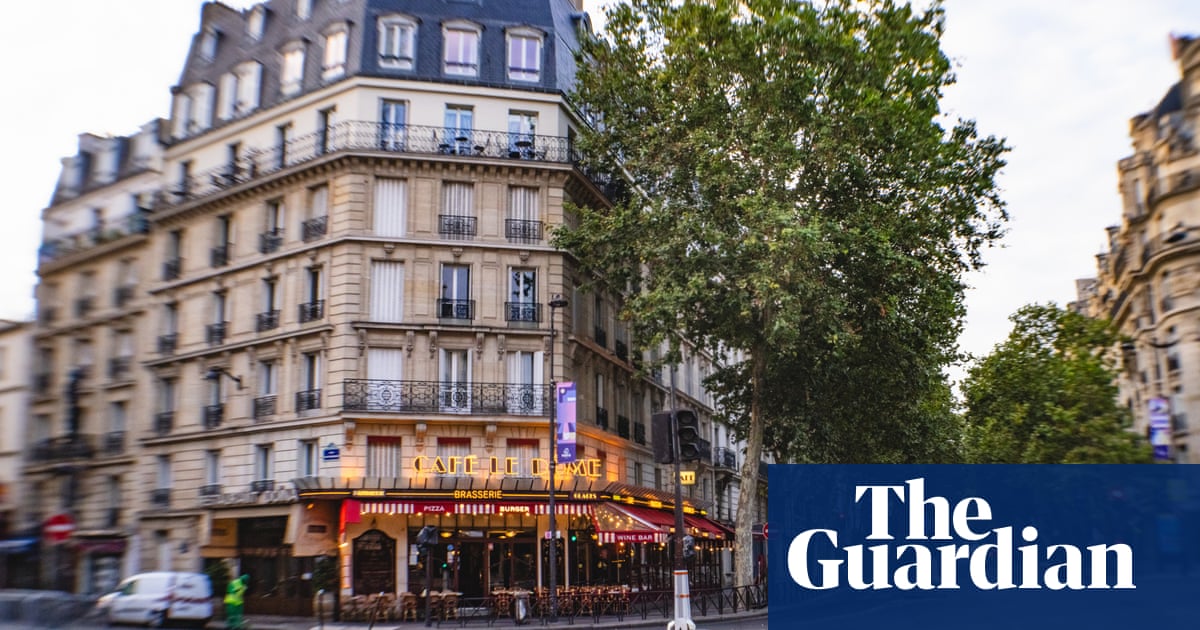orAustralia’s best athletes will make their mark in Paris over the coming weeks, their best efforts leaving a powerful, if perhaps brief, impact in the French capital. But many of the several thousand Australians living in the country have already made a lasting impression on French life.
Fox McInerney, owner of Good News cafe and roastery Cayo, says Australian cafe culture has taken off in the last decade and there are now more than 10 Australian-owned or operated businesses in central Paris offering an alternative to the dominant local brand “Cafés”. Richard.
“[Cafés Richard] have a real monopoly on a lot of bistros, old-school places,” says McInerney. “The coffee they’ve taught France to appreciate is garbage, it’s burnt, it’s overextracted, it’s terrible, but because people are used to with that, that’s their perception of what good coffee tastes like. But it’s changing.”
The 45-year-old, who came to France from Melbourne and initially worked in bike touring and graphic design, was encouraged by a former partner to open a cafe after he couldn’t stop complaining about the quality of the local coffee.
McInerney’s six-year-old venture has now expanded into a roasting business and is among a growing group of Australian-influenced coffee shops including Coutume, The Hardware Societe, Lomi and O Coffee.
It has not always been easy to convince the Parisians. A so-called Australian espresso can be twice the price of a local option, with half the volume. “They’re sometimes a bit shocked by it here and can get quite upset – it’s usually the older generation who do – but yeah, you just have to respect that people have different expectations,” says McInerney.
Those behind Café Oz – a chain of bars offering an Australian-style party pub – claim a similar influence on Parisian nightlife. Since its inception in 1992, Café Oz has helped bring diversity to the local scene, offering an English-style bar combined with big-screen sports and a buzzing atmosphere.
Development director James McEwan-Hall – who grew up on Sydney’s northern beaches and credits a high school teacher with inspiring a love of French – said the Café Oz model represented a change from the usual table service. for many French institutions. . “A lot of other bars have popped up and I think people saw the way we do it and how simple it is,” he adds.
Within the top culinary scene, several Australians have become prominent figures. 35-year-old head chef Hanz Gueco has won favor at his French-Chinese restaurant Le Cheval D’Or, and James Henry and Shaun Kelly have made Le Doyenné, their restaurant 41 km south of Paris into a country estate, a place international. tourist destination.
Jana Lai, an Australian-born pastry chef who has lived in France for nine years, has also worked at the top of her field from the start as an assistant. “There were maybe one or two people who really underestimated me, which was great,” Lai says. “They basically thought I was a zero – which I kind of was – and that just fueled that fire and made me really angry, and when that happens, you just want to prove everybody wrong, and so I have done ever since.”
The 38-year-old was the first woman to join the French team at the prestigious Pastry World Cup last year and plans to enter the Meilleur Ouvrier de France, a competition made famous by the 2009 documentary Kings of Pastry.
Despite the industry’s gendered traditions, Lai says she has found her industry welcoming and has also come to appreciate the impact she has on those who come after her.
“After the last few pageants, I’ve had a lot of women come up to me, and they’ve said — and they make me cry, too — ‘thank you, and you’re such an inspiration,'” says Lai. “I don’t see myself that way at all, but hearing it from people makes you go, ‘hmm, maybe I can go further.'”
McInerney believes he could not have had the success he has without the general level of goodwill shown by most Parisians towards Australians.
“That I would want to come and live in France was just terrible for them,” he says. “They couldn’t understand it because the only thing they wanted to do in their lives was go to Australia and maybe never come back.”
